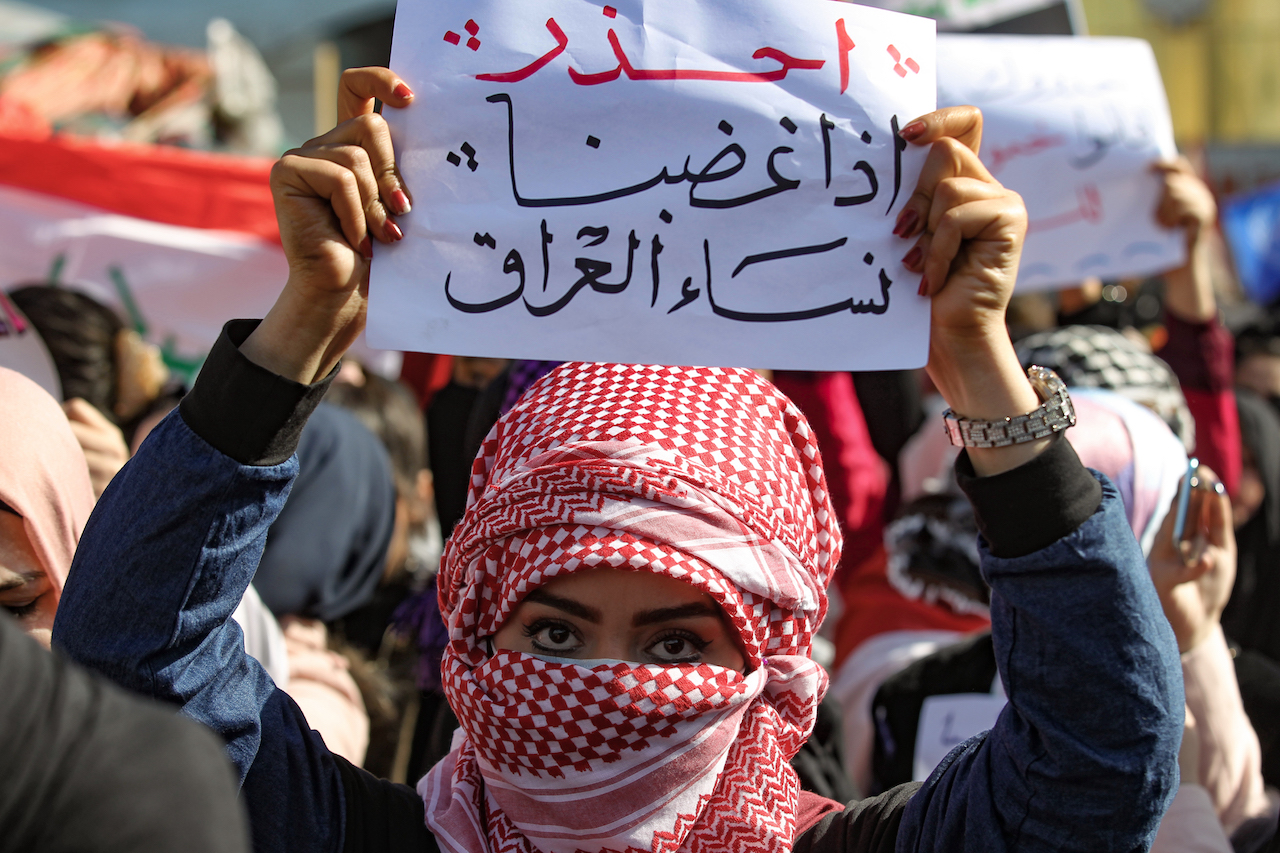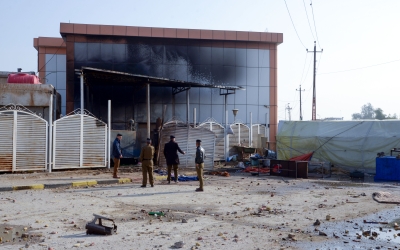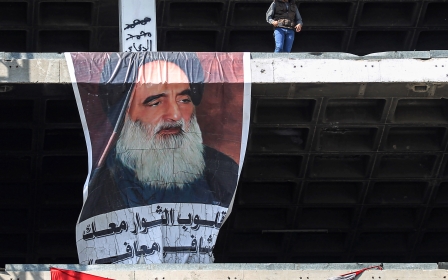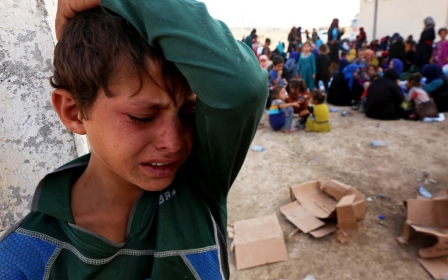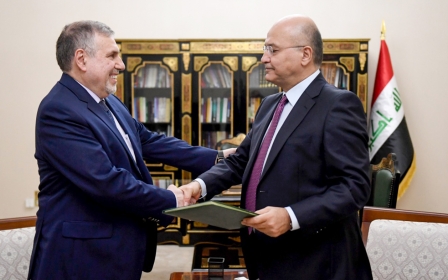Iraqi protesters doubt Sadr's move to disband 'Blue Caps' militia
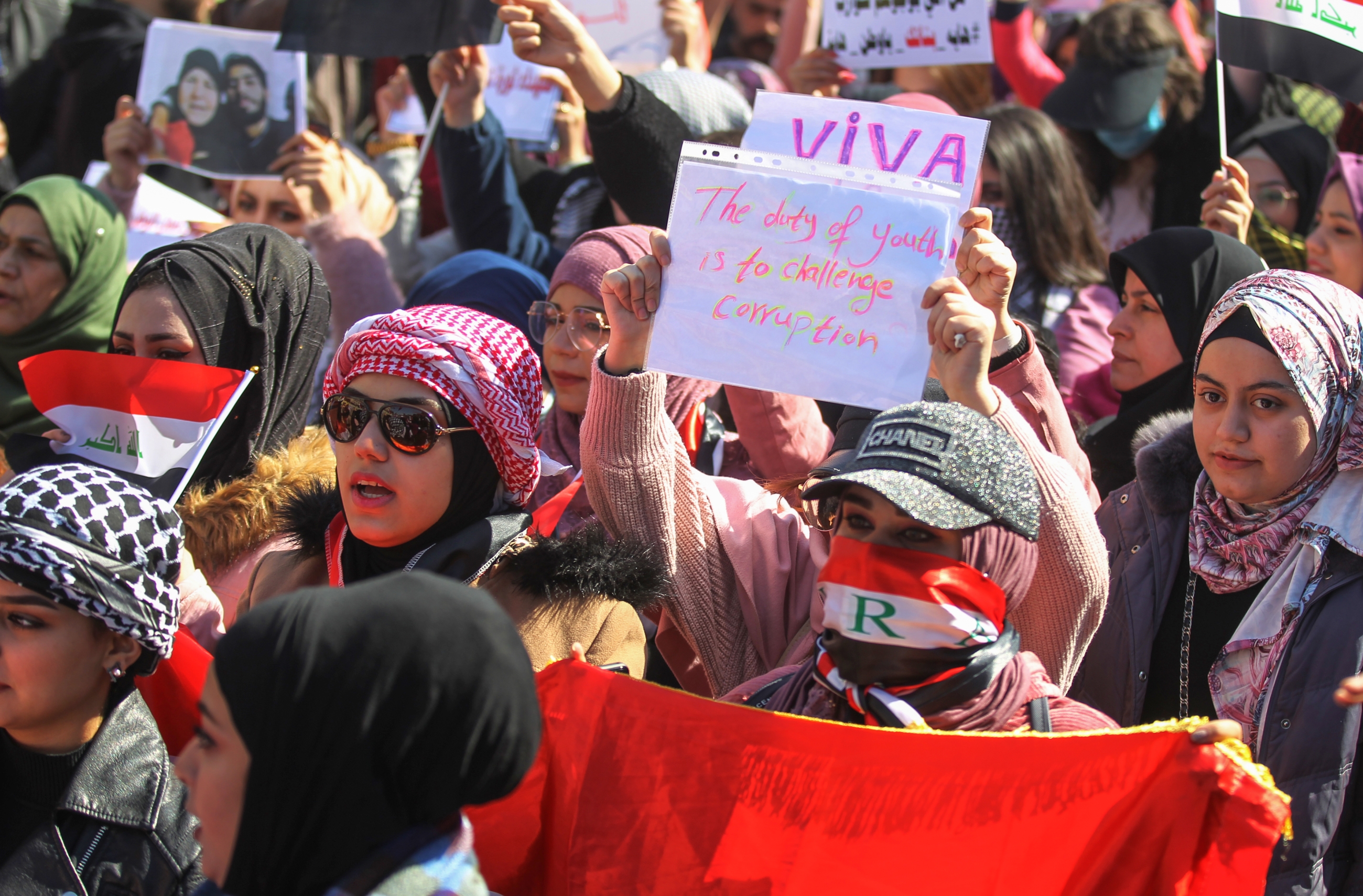
Activists in Iraq have reacted with scepticism to the announcement by Shia cleric Muqtada al-Sadr that he was dissolving his "Blue Caps" militia group, after they were accused of killing protesters in the country's south.
On Tuesday, Sadr tweeted that the Blue Caps - named after their signature headgear - would be disbanded. He had previously warned his followers against using force on protesters, saying it was their duty to support schools and local institutions and not to suppress people criticising or insulting him.
Although initially supportive and protective of the anti-government protest movement, Sadr made a U-turn after the designation of Mohammed Tawfik Allawi as new prime minister earlier this month. In response, Sadr's supporters attacked a number of protest camps across the south, including in Najaf where at least seven people were killed.
'The Blue Caps did a massacre in Najaf days ago and today he disbanded them, to clean up the militia and please people with his decisions, but we all know that it's just a game he plays'
- Zainab al-Rubaie, student
Videos went viral on social media, showing the Blue Caps using lethal force against peaceful protesters in an attempt to subdue the demonstrations and reopen roads.
A number of protesters see Sadr's call for dissolution as opportunistic, viewing it as an attempt to deflect the criticism that followed his supporters' violence.
“The Blue Caps did a massacre in Najaf days ago and today he disbanded them, to clean up the militia and please people with his decisions, but we all know that it's just a game he plays," said Zainab al-Rubaie - no relation to the author - a 21-year-old university student from Baghdad.
Others pointed out that Sadr suggested in his tweet that the Blue Caps should be "absorbed" into the protests, indicating his supporters would still be active among the demonstrators.
Another Baghdad activist, Al-Qasem Ahmed, said there had been constant flip-flopping from Sadr, arguing that his supporters' support for or opposition against the protest movement was primarily a tool to pressure the government.
"When he needs a political boost, he withdraws the Blue Caps from protest areas and sends some of his followers to stir chaos," he said.
"If he gets a political gain, he returns them to the squares.”
'Exactly what IS wanted'
Since the attacks by his supporters, the animosity between Sadr and the protesters has reached new heights.
A number of demonstrations have taken place against both the actions of Sadr's supporters and his continued attempts to take control of the anti-government movement, currently in its fifth month.
Last week, Sadr issued an 18-point charter outlining how the demonstrations should be conducted. Among these was a demand to end the mixing of genders during protests.
Female demonstrators took to the streets on Thursday in open defiance of his demands.
Thousands of women - flanked by thousands of men - flooded the cities of Baghdad, Nasiriyah and Basra to promote the role of women in the uprising.
Fatima Sami, 22, a university student, said that Sadr's warning against genders mixing reminded her of the policies implemented by the Islamic State (IS) group.
“What Muqtada said in his call to prevent mixing between two sexes, he reminded me of exactly what IS wanted when they captured a third of Iraq," she said.
“Our revolution is not a mix of sexes - it is a mix of blood, home and principle.”
Ahmed also said Sadr was emulating IS, comparing him to its late leader Abu Bakr al-Baghdadi.
"His words - if we compare with what IS was saying - we will notice that the difference is in the Islamic faith only," he said, referring to Sadr following the Shia branch of Islam, unlike the Sunni IS.
"But the concept is the same: forming groups demanding virtue and prohibiting vice."
Losing the streets
On Thursday, Sadr posted another tweet condemning what he saw as the risk of socially liberal values infecting the protest movement.
He warned against making Iraq like either Afghanistan's very socially conservative Kandahar or the US's Chicago, a city, he said, noted for "moral looseness" and homosexuality.
Iraqi political analyst Ghanim al-Abed said that Sadr's confusing flurry of positions on the protests stemmed from a desire to try and capitalise on both the anti-government movement and the vacuum left by the collapse in popularity for socially conservative Islamic parties.
“Sadr found himself the loser amid the streets’ anger due to his attempts to put an end to the revolution," he told MEE.
“Even after dissolving the Blue Caps unit, they still target the protesters and activists in many other ways, wearing normal clothes just like civilians.”
More than 500 people have been killed since 1 October, when the protests began.
Despite a continuous assault from the security services and Sadr supporters, the protesters remain steadfast, refusing to vacate the spaces and camps they have occupied for many months.
“In the beginning of the protests, Blue Caps were supportive of us but then later they turned against us, they violated protesters, male and female, and used knives to injure anyone standing against them," said demonstrator Fatima Sami.
“With or without Sadr's tweets or his Blue Caps, I will continue to protest, men and women as one body - if one organ is damaged, the others will be damaged, too."
Middle East Eye propose une couverture et une analyse indépendantes et incomparables du Moyen-Orient, de l’Afrique du Nord et d’autres régions du monde. Pour en savoir plus sur la reprise de ce contenu et les frais qui s’appliquent, veuillez remplir ce formulaire [en anglais]. Pour en savoir plus sur MEE, cliquez ici [en anglais].


